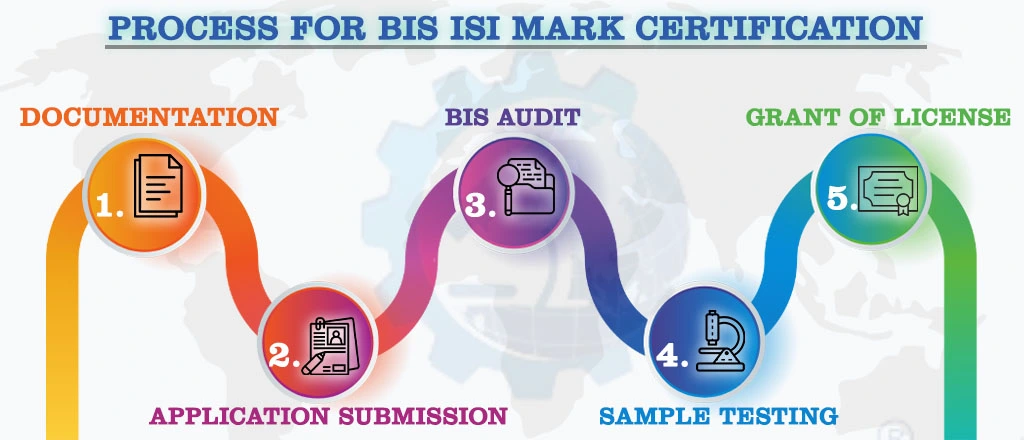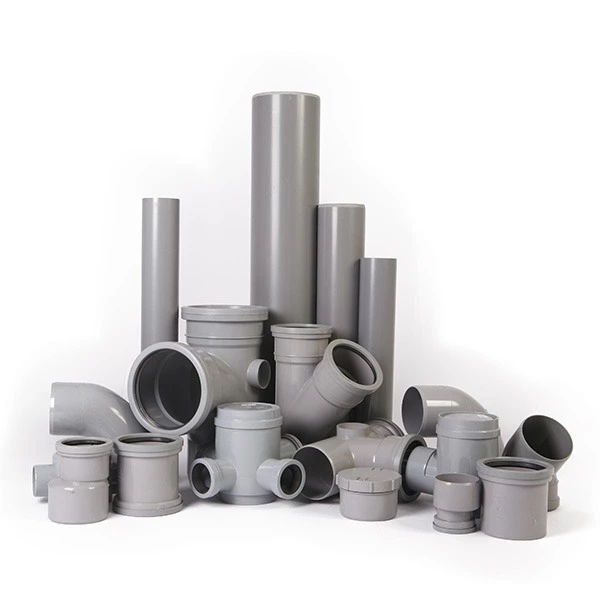BIS CERTIFICATION FOR NON-PRESSURE UPVC PIPES FOR DRAINAGE AND SEWERAGE SYSTEM IS 15328
If you are a manufacturer, a question should always be on your mind while producing goods. What requirements, procedures and testing methodology, and quality control orders need to be followed to produce standard quality products? What is the procedure for BIS certification?
Make sure that your product must follow specified Indian standard for that product. Let's take a closer look at IS 15328:2003 for Unplasticized non-pressure Polyvinyl Chloride (PVC-U) pipes.
The Bureau of Indian Standards adopted this Indian Standard after the Civil Engineering Division Council approved the draft finalized by the Plastic Piping System Sectional Committee. The purpose of this standard is to provide guidance for the manufacture and selection of PVC-U pipes for the conveyance of domestic sewage, industrial waste, and surface water (other than potable water).
Unplasticized non-pressure Polyvinyl Chloride (PVC-U) pipes for use in underground drainage and sewerage systems are covered under IS 15328:2003. This standard specifies the requirement for plain ended or equipped with integral sockets for solvent-cement welding or joining with elastomeric sealing rings pipes made of unplasticized polyvinyl chloride (PVC-U) with nominal outside diameters ranging from 110 mm to and including 630 mm, intended for non-underground pressure gravity drain and sewer applications for transportation of domestic soil and waste discharge, surface water, and industrial effluent.
The material from which the pipe is made shall be primarily polyvinyl chloride. Only those additives are necessary to facilitate the manufacture of the compound, and the manufacture of sound and durable pipe with good surface finish, mechanical strength, and opacity under normal conditions may be added. The material must contain at least 0.3 percent retile grade titanium dioxide.
The product is tested to determine the Vicat softening temperature, resistance to external blows, ring stiffness, and leak tightness under positive and negative temperature conditions. This pipe will also be subjected to a type and acceptance test.
MARKING
Each pipe shall be clearly and indelibly marked in the specified color in ink/paint or hot-embossed on a white base at intervals of not more than 3 m, but at least once per pipe.
The marking shall show the following:
- Identification of the source of manufacture,
- Outside diameter,
- Stiffness class, and
- Batch or Lot number
Each pipe may also be marked with the Standard Mark (ISI Mark). The manufacturer must obtain a BIS license from the Bureau of Indian Standards to use a standard mark (ISI Mark). The Bureau grants a license based on a successful assessment of a manufacturer's manufacturing infrastructure, production process, and quality control and testing capabilities during a visit to its manufacturing premises.

NOTE:
For Detailed Information about the Procedure for BIS ISI Certification,
Visit :
ISI Mark Certification for Domestic ManufacturersISI Mark Certification for Foreign Manufacturers
Conclusion:
If a product falls under the scope of the BIS Conformity Assessment Scheme, All the manufacturers, importers, and foreign entities must obtain BIS ISI Certification. The Bureau may cancel the License if the product fails to meet certification requirements.
Aleph INDIA has been serving the industry as a single-window operator for all product regulatory compliance. We can assist importers or manufacturers in meeting all criteria for importing or selling a product in the Indian market.
International Audits & Participation
Testimonials
BIS REGISTRATION FOR ELECTRONIC & IT PRODUCT
In the era of globalization, world trade is growing rapidly and henceforth, Manufacturing and Import/Export businesses are also growing drastically...View More
BIS CERTIFICATE FOR FOREIGN MANUFACTURER
The Economy of India-the fastest developing economy on the globe with the capabilities that help it matches up with the biggest international...View More
PRODUCT CERTIFICATION SCHEME (ISI MARK) FOR DOMESTIC MANUFACTURERS
Anything a person buys from food to cars, clothes to electronics, branded to unnamed products there is always a question that wanders in one’s...View More
WIRELESS PLANNING AND COORDINATION (WPC)
WPC: Wireless means communication done from one point to another point without the wires and cables. Electromagnetic waves carry the ...View More
BUREAU OF ENERGY EFFICIENCY (BEE) CERTIFICATE
BEE CERTIFICATE: Energy is the future, and its conservation is the way of the bright future. Everyone claims the environment is important...View More
E-WASTE MANAGEMENT
E-waste is one of the world's fastest-growing trash streams. We currently manufacture almost 50 million tones of it each year...View More
Request a call back.
Would you like to speak to one of our Senior Technical advisers over the phone? Just submit your details and we’ll be in touch shortly. You can also email us if you would prefer.
BIS REGISTRATION FOR ELECTRONIC & IT PRODUCT
In the era of globalization, world trade is growing rapidly and henceforth, Manufacturing and Import/Export businesses are also growing drastically...View More
BIS CERTIFICATE FOR FOREIGN MANUFACTURER
The Economy of India-the fastest developing economy on the globe with the capabilities that help it matches up with the biggest international...View More
PRODUCT CERTIFICATION SCHEME (ISI MARK) FOR DOMESTIC MANUFACTURERS
Anything a person buys from food to cars, clothes to electronics, branded to unnamed products there is always a question that wanders in one’s...View More
WIRELESS PLANNING AND COORDINATION (WPC)
WPC: Wireless means communication done from one point to another point without the wires and cables. Electromagnetic waves carry the ...View More
BUREAU OF ENERGY EFFICIENCY (BEE) CERTIFICATE
BEE CERTIFICATE: Energy is the future, and its conservation is the way of the bright future. Everyone claims the environment is important...View More
E-WASTE MANAGEMENT
E-waste is one of the world's fastest-growing trash streams. We currently manufacture almost 50 million tones of it each year...View More
View All Services
Request a call back.
Would you like to speak to one of our Senior Technical advisers over the phone? Just submit your details and we’ll be in touch shortly. You can also email us if you would prefer.






























